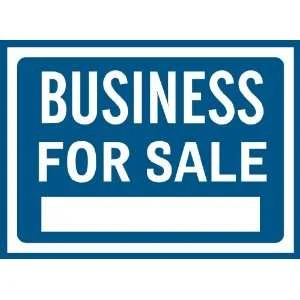Determining the right price for a business for sale is a complex process that involves various factors and methodologies. Whether you are a buyer looking to invest in a business or a seller aiming to get the best return on your investment, understanding the principles of business valuation is crucial. This guide will walk you through the key aspects of business valuation, highlighting essential factors, common methods, and practical tips to ensure a fair and accurate valuation.
The Importance of Accurate Valuation
Accurate valuation is the cornerstone of any successful business transaction. It ensures that both parties – the buyer and the seller – are getting a fair deal. For sellers, a well-calculated valuation helps in setting a competitive yet realistic price, attracting serious buyers. For buyers, it provides a clear picture of the business’s worth and its potential for future growth. Misvaluation can lead to significant financial losses, mistrust, and potential legal issues.
Key Factors Influencing Business Valuation
Financial Performance: The most critical factor in business valuation is its financial health. This includes revenue, profit margins, cash flow, and expenses. Consistent and growing profits generally indicate a healthy business and justify a higher valuation.
Market Conditions: The state of the economy and specific industry trends can significantly impact business value. A thriving market can boost valuations, while a downturn can decrease them.
Asset Value: Tangible assets (like real estate, machinery, and inventory) and intangible assets (like intellectual property, brand reputation, and customer relationships) both contribute to the overall value of the business.
Growth Potential: A business with high growth potential in terms of market expansion, product development, or operational efficiency tends to attract higher valuations.
Competitive Landscape: The level of competition within the industry can affect the business’s value. A business with a unique value proposition or competitive advantage is likely to be valued higher.
Management and Workforce: The quality and stability of the management team and workforce can influence the business’s valuation. Experienced and effective leadership is often seen as a valuable asset.
Common Valuation Methods
Asset-Based Valuation: This method calculates the value of a business based on the total value of its assets minus liabilities.
Earnings Multiple: This approach involves multiplying the business’s earnings (usually EBITDA – Earnings Before Interest, Taxes, Depreciation, and Amortization) by an industry-specific multiple. The multiple reflects the expected return on investment and risk factors.
Discounted Cash Flow (DCF): The DCF method estimates the present value of future cash flows generated by the business.
Market Comparison: This method involves comparing the business to similar businesses that have been sold recently. It requires access to reliable market data and is often used in conjunction with other methods.
Practical Tips for Determining the Right Price
Conduct Thorough Due Diligence: Whether buying or selling, comprehensive due diligence is essential. This includes analyzing financial statements, market conditions, and potential risks.
Engage Professional Valuators: Professional business valuators or financial advisors can provide an objective and expert assessment of the business’s value. Their insights can be invaluable in negotiations.
Consider Non-Financial Factors: While financial performance is crucial, non-financial factors such as brand reputation, customer loyalty, and operational efficiency also play a significant role in valuation.
Understand Industry Multiples: Familiarize yourself with the typical valuation multiples used in your industry. This knowledge can help in setting realistic expectations and benchmarks.
Negotiate Based on Data: Use the data and insights gathered during the valuation process to negotiate effectively.
Special Considerations for “Dubai Business for Sale”
When it comes to buying or selling a business in Dubai, there are specific considerations to keep in mind:
Regulatory Environment: Dubai has a unique regulatory framework that affects business operations, ownership structures, and compliance requirements. Understanding these regulations is crucial for an accurate valuation.
Market Dynamics: Dubai’s market is influenced by factors such as tourism, real estate development, and international trade. These dynamics can impact business performance and valuation.
Expatriate Workforce: Many businesses in Dubai rely on an expatriate workforce. The stability and availability of this workforce can influence the business’s value.
Free Zones: Dubai offers various free zones with different benefits such as tax exemptions and full foreign ownership. The location of the business within or outside a free zone can affect its valuation.
Cultural Factors: Understanding local cultural nuances and business practices is essential. This can affect customer relationships, partnerships, and ultimately the business’s value.
Conclusion:
Determining the right price for a business for sale requires a thorough understanding of various factors and valuation methods. By considering financial performance, market conditions, asset values, growth potential, and competitive landscape, you can arrive at a fair and accurate valuation. Engaging professional valuators and conducting diligent research are crucial steps in this process. For those involved in a “Dubai Business For Sale,” paying attention to the specific regulatory, market, and cultural factors of the region can significantly influence the valuation outcome. By following these guidelines, both buyers and sellers can ensure a successful and equitable business transaction.

